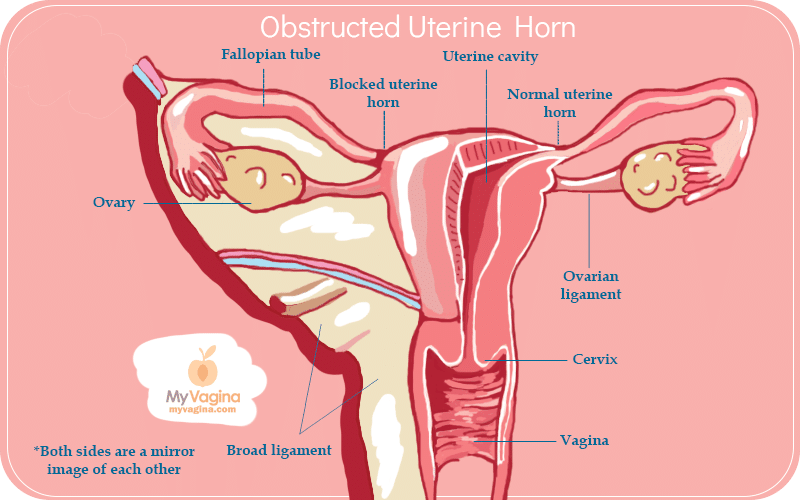An obstructed uterine horn is an anatomical abnormality whereby the uterus is not properly connected to the fallopian tube. The uterine horn connects your fallopian tubes to your uterus, and is a normal part of your anatomy.
This horn allows the egg to get from the fallopian tube to the uterus at ovulation. If this connection is interrupted, then fertility issues can arise because the sperm and egg fail to meet in the fallopian tube, where conception occurs. This misconnection of the uterine horn could be on one or both sides of the uterus.
If you have an obstructed uterine horn, ovulation may be occurring, but an egg is available for fertilisation either only when the clear uterine horn side ovary releases an egg, or if both are obstructed, an egg may never reach the uterus.
The ovary that releases an egg does not switch from left to right each month. Which ovary releases an egg is unpredictable.
How IUDs utilise the uterine horn to prevent pregnancy
Intrauterine devices (IUDs) work in several ways, but one way is to block the uterine horns from releasing an egg into the uterus. This means the egg is naturally reabsorbed by the body.
Symptoms of an obstructed uterine horn
- Abdominal pain
- An abdominal mass
- Period pain, which may vary in severity
Why does an obstructed uterine horn occur?
An obstructed uterine horn is a female reproductive abnormality whereby the Mullerian ducts malform in a developing foetus. This is considered a Mullerian duct abnormality and is related to unicornuate uterus.1,2
Treatment for an obstructed uterine horn
Consequences of a lack of treatment can be severe, however, each individual case will be examined on its own. Surgery is typically the treatment of choice, but the situation can be much more complicated if there is a pregnancy. 3,4
References
- 1.Nagshabandi ZK, Isaac B, Begum I. Unicornuate Uterus with Rudimentary Horn as a Rare Etiology of Secondary Dysmenorrhea: A Case Report. Dubai Med J. Published online November 12, 2021:50-53. doi:10.1159/000519872
- 2.Chandler TM, Machan LS, Cooperberg PL, Harris AC, Chang SD. Müllerian duct anomalies: from diagnosis to intervention. BJR. Published online December 2009:1034-1042. doi:10.1259/bjr/99354802
- 3.Gitas G, Eckhoff K, Rody A, et al. An unprecedented occult non-communicating rudimentary uterine horn treated with laparoscopic excision and preservation of both fallopian tubes: a case report and review of the literature. J Med Case Reports. Published online February 4, 2021. doi:10.1186/s13256-020-02636-x
- 4.Letterie GS. Management of congenital uterine abnormalities. Reproductive BioMedicine Online. Published online July 2011:40-52. doi:10.1016/j.rbmo.2011.02.008







